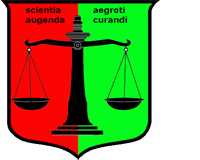Institute for Response-Genetics (e.V.)Chairman: Prof. Dr. Hans H. StassenPsychiatric Hospital (KPPP), University of Zurich |

|


|
Nongenetic Pathologic Developments of Brain-Wave PatternsThe within-pair EEG concordance of monozygotic (mz) twins is found to be typically as high as r = 0.81 across channels and frequency bands, thus being comparable to that between repeated assessments on the same individual with r = 0.83. Yet our previous investigation into mz twins discordant and concordant for schizophrenia yielded a significantly reduced within-pair EEG concordance for both, the pairs discordant for schizophrenia and the pairs concordant for schizophrenia. Twins with SchizophreniaFor the within-pair correlation of the global EEG parameter "total power 0-32 Hz", for example, we found a value of r = 0.772 for the healthy twins which is typical of normal mz twins, a reduced value of r = 0.513 for the twins discordant for schizophrenia, and an extremely low correlation of r = 0.210 for the twins concordant for schizophrenia. This marked reduction of within-pair concordance was with 0.488/0.189 [2-5 Hz], 0.484/0.388 [5-8 Hz], 0.642/0.507 [8-12 Hz] and 0.147/0.544 [12-16 Hz] equally true for all power-related EEG parameters in the pairs concordant for schizophrenia. Affected versus Unaffected Co-TwinsThe pairs discordant for schizophrenia displayed a reduction of within-pair concordance for the EEG parameters "centroid" and "symmetry" which measure the power-frequency distribution of frequency bands: 0.258/0.123 [2-5 Hz], 0.294/0.317 [5-8 Hz] and 0.411/0.560 [8-12 Hz]. ANOVAs supported the above results. Specifically, the total EEG power [0-32 Hz] was virtually identical in the healthy co-twins (p > 0.8402), but different between affected and unaffected subjects (p < 0.0001). The severity of illness, as derived from EEG-differences between affected and unaffected subjects, was closely related to the severity of illness as provided by psychopathology syndrome scores. EEG AnomaliesConsequently, EEG anomalies associated with schizophrenia and manifested differently in the mz co-twins concordant for schizophrenia are likely the effect of nongenetic, pathologic processes that evolved independently in the co-twins’ genetically identical brains once the illness began to progress. References
Stassen HH, Bachmann S, Bridler R, Cattapan K, Herzig D, Schneeberger A, Seifritz E. Inflammatory
Processes linked to Major Depression and Schizophrenic Disorders and the Effects of Polypharmacy
in Psychiatry: Evidence from a longitudinal Study of 279 Patients under Therapy. Eur Arch
Psychiatry Clin Neurosci. 2021; 271(3): 507-520
[get the article]
Braun S, Bridler R, Müller N, Schwarz MJ, Seifritz E, Weisbrod M, Zgraggen A, Stassen HH:
Inflammatory Processes and Schizophrenia: Two Independent Lines of Evidence from a Study
of Twins Discordant and Concordant for Schizophrenic Disorders. Eur Arch Psychiatry Clin
Neurosci 2017; 267: 377-389
[get the article]
Braun S, Bridler R, Müller N, Schwarz MJ, Seifritz E, Weisbrod M, Zgraggen A, Stassen HH:
Inflammatory Processes and Schizophrenia: Two Independent Lines of Evidence From a Study
of Twins Discordant and Concordant for Schizophrenic Disorders. Neuropsychopharmacology
2016; 41: S414–S415
Stassen HH, Delfino JP, Kluckner VJ, Lott P, Mohr C: Vulnerabilität und psychische Erkrankung.
Swiss Archives of Neurology and Psychiatry 2014; 165(5): 152-157
Stassen HH, Angst J, Hell D, Scharfetter C, Szegedi A: Is there a common resilience mechanism
underlying antidepressant drug response? Evidence from 2'848 patients. J Clin Psychiatry 2007;
68(8): 1195-1205
Buckelmüller J, Landolt HP, Stassen HH, Achermann P: Trait-like individual differences in the
human sleep EEG. Neuroscience 2006; 138: 351-356
Weisbrod M, Hill H, Sauer H, Niethammer R, Guggenbühl S, Stassen HH: Nongenetic pathologic
developments of brain-wave patterns in monozygotic twins discordant and concordant for
schizophrenia. Am J Med Genetics B 2004; 125: 1-9
Stassen HH: EEG and evoked potentials. In: D. Cooper (ed) Nature Encyclopedia of the Human
Genome. Nature Publishing Group, London 2003; 3: 266-269
Umbricht D, Koller R, Schmid L, Skrabo A, Grübel C, Huber T, Stassen HH: How specific are
deficits in mismatch negativity generation to schizophrenia? Biol Psychiatry 2003; 53:
1120-1131
Dünki RM, Schmid GB, Stassen HH: Intraindividual specificity and stability of the human EEG:
Linear vs. nonlinear approaches. Meth Inform Med 2000; 39: 78-82
Stassen HH, Coppola R. Torrey EF, Gottesman II, Kuny S, Rickler KC, Hell D: EEG differences in
monozygotic twins discordant and concordant for schizophrenia. Psychophysiology 1999; 36,1:
109-117
Stassen HH, Bomben G, Hell D: Familial brain wave patterns: study of a 12 sib family. Psychiat
Genetics 1998; 8: 141-153
Dünki RM, Schmid GB, Scheidegger P, Stassen HH, Bomben G, Propping P: Reliable computer-assisted
classification of the EEG: EEG variants in index cases and their first-degree relatives.
Am J Med Genetics B 1996; 67,1: 1-8
Kaprio J, Buchsbaum M, Gottesman II, Heath A, Körner J, Kringlen E, McGuffin P, Propping P,
Rietschel M, Stassen HH: What can twin studies contribute to the understanding of adult
psychopathology? In: T.J. Bouchard jr. and P. Propping: Twins as a tool for behavioral
genetics. Chichester: John Wiley & Sons, Dahlem Workshop Reports, Life Sciences Research
Report 1993; 53: 287-299
Stassen HH, Lykken DT, Propping P: Zwillingsuntersuchungen zur Genetik des normalen
Elektroenzephalogramms. In: P. Baumann (ed): Biologische Psychiatrie der Gegenwart, Wien:
Springer 1993, 139-144
Stassen HH, Lykken DT, Propping P, Bomben G: Genetic determination of the human EEG (survey
of recent results from twins reared together and apart). Human Genetics 1988; 80:
165-176
Stassen HH, Lykken DT, Bomben G: The within-pair similarity of twins reared apart. Eur Arch
Psychiatr Neurol Sci 1988; 237: 244-252
Stassen HH, Bomben G, Propping P: Genetic aspects of the EEG: an investigation into the
within-pair similarity of monozygotic and dizygotic twins with a new method of analysis.
Electroenceph clin Neurophysiol 1987; 66: 489-501
Stassen HH: The similarity approach to EEG analysis. Meth Inform Med 1985; 24: 200-212
Stassen HH: Computerized recognition of persons by EEG spectral patterns. Electroenceph
clin Neurophysiol 1980; 49: 190-194
|
|

Myriel is a longterm schizophrenic patient whose powerful language, as expressed through her prose and poems, enthrall and fascinate the reader instantaneously. A similar fascination emanates from her paintings and drawings. Thus, her individual suffering, reflected through the power of artistic expression, becomes a depiction of the schizophrenic disorders of the self in general. |
|
| [ Mail to Webmaster ] k454910@ifrg.ch |